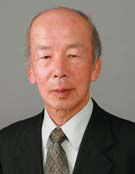Greetings and Gratitude: Expectations for a New Beginning

The Graduate School of System Design and Management (SDM) marks a milestone this month. Since opening in April 2008, we have awarded seven Ph.D.s and 107 Master's degrees. We currently have 199 students enrolled and are well on our way to achieving our initial targets. SDM began with the idea of training talented leaders in the drastically changing society of the 21st century from Japan and other countries in a true fusion of the sciences and humanities, enhanced by interaction among generations. We achieved our goal of creating a revolutionary graduate school, where the faculty and students alike take on challenges in unexplored domains. Though "System design" is not a familiar academic endeavor to most, a large number of companies and organizations see its value. Our ideas have resonated with researchers, educators, technologists, and business people in Japan and many other countries. All of these organizations and individuals have provided unstinting support for our activities. We should also note that we received critical support from the Ministry of Education, Culture, Sports, Science and Technology 21st-century COE Program in the planning stages and benefit from the Ministry's Global COE Program's support today. The generous support and subsidies we have received from numerous companies and the Japanese government have been instrumental in the SDM's development, and we wish to express our gratitude for these substantial contributions.
April 2011 marks the start of a new academic year as well as some significant changes for the SDM. The first thing you will notice is a substantial rejuvenation of the full-time faculty. We expect our new professors to take on even more ambitious challenges. We have identified the best directions for our educational and research activities, and have obtained a number of "best practices" and "lessons learned" over the last three years. Our new faculty has been instrumental in analyzing them to formulate a more systematic and unified curriculum, to upgrade our international project design subject, ALPS (Active Learning Project Sequence), to bring in more corporate participation, and to add greater depth and variety to our Master's studies. We are confident that our students, if they are willing to make use of this drive and power to tackle difficult problems, will emerge as the new concept leaders in the 21st century, not just in technology systems, but in social systems as well. We hope to see Japan become more comfortable with the concept of system design, and to combine our skills at precision design and manufacturing with the integrated concepts of system design and management.
As I step down from my position as Dean, I would like to express my heartfelt gratitude to the many companies, organizations and individuals who have provided such generous support for the Graduate School of System Design and Management and our Research Institute, and I would like to ask for their continued support as they go forward.
The Great Tohoku-Kanto Earthquake
At 2:46 PM on March 11, 2011, a disaster of historical proportions struck the eastern coast of the Tohoku-Kanto area in the form of a magnitude 9.0 earthquake and a tsunami of unprecedented force. We mourn the loss of untold numbers who had no chance to escape in spite of all of the tsunami preparedness and evacuation training that had been done. The tsunami was so devastating that the emergency cooling system at the Fukushima Daiichi Nuclear Plant was rendered inoperable. Workers are now putting their lives at risk to prevent the dispersal of radioactive material from the site, and we give them our deepest respect and our prayers for their safety. Meanwhile, hundreds of thousands of people have been forced to evacuate, and we can only pray that they will return to their former lives as quickly as possible. This unprecedented natural disaster has also brought an extraordinary amount of interest and best wishes from other countries. It will have a tremendous impact not only on Japan but on the global community, and our top priority must be the identification of both short-term and long-term solutions to the obstacles it has raised. At the Graduate School of System Design and Management, we keenly feel the need for dispassionate analysis of what we can and should do, and the need to take proactive steps in response. The Japanese have overcome earthquakes and war in the past. We must learn from our predecessors as we work quickly to rebuild and create a safer, more secure society.
(Written on March 23, 2011)
Yoshiaki Ohkami
Director, SDM Research Institute
Dean, Graduate School of System Design and Management
